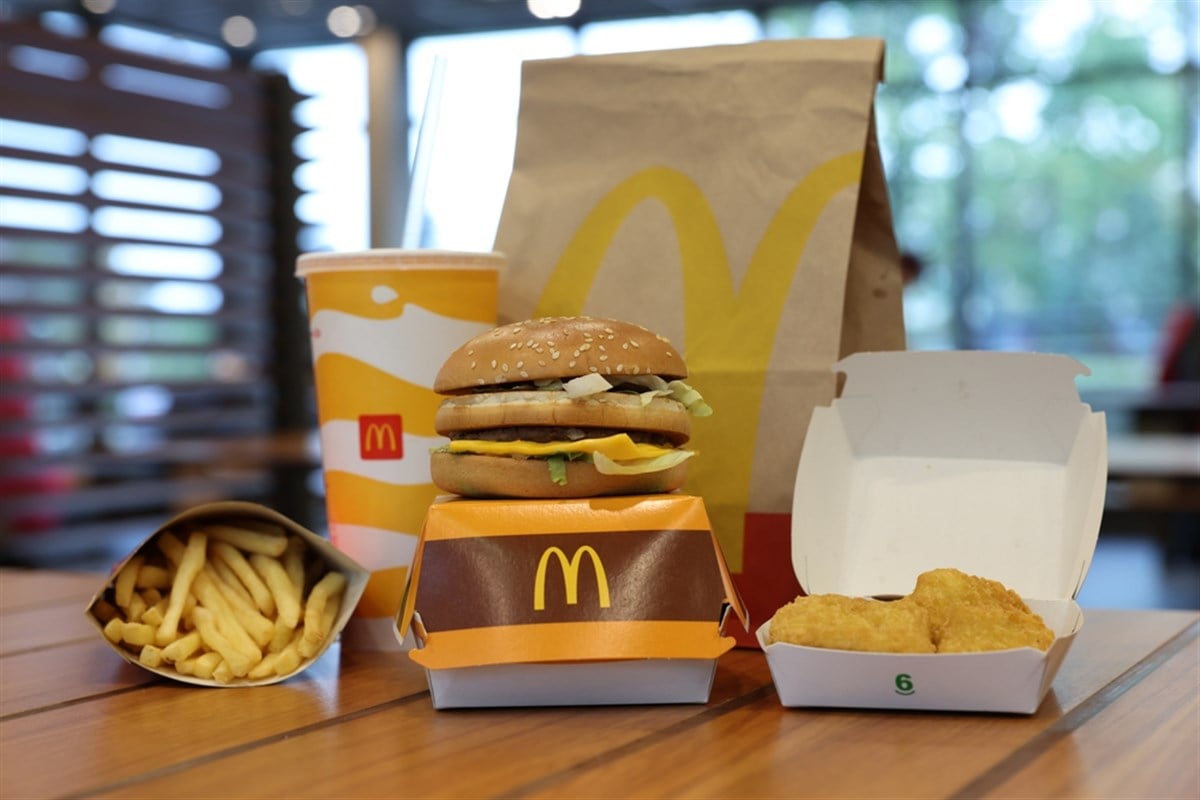
The U.S. consumer is going through one of the most significant constraints in the economy of all its fast food with the growing burning hole at the bottom of their pockets. With fast food being higher than the Federal Reserve’s (the Fed) goal of 2%, employees at work won’t do it anymore to keep the same standard of living most people had just a year ago.
That is why companies like Target Co. (NYSE: TGT) and even Walmart Inc. (NYSE: WMT) agreed – for the nation's sake – to lower prices on over 1,500 items recently. While this act could have been taken as a negative from the stock market since it will inevitably affect profits, Walmart has had a 30.4% run in the past six months. Target has finally recovered from its recent dip, pushing 2% in the past week.
After a period that was arguably driven by corporate greed, fast food restaurants like McDonald’s Co. (NYSE: MCD) saw their net margins rise to all-time highs, outpacing the supposed rising labor and commodity inputs costs. Realizing that taking advantage of these trends wasn’t the best move, the brand has announced a $5 meal to start cleaning the mess it made.
This move has started a price war for other fast food brands, as Wendy’s Co. (NASDAQ: WEN) and even Starbucks Co. (NASDAQ: SBUX) have joined in their own version of a price-driven combo. The question is, which brand stands the better chance to survive these cuts?
McDonald's Leverages Its Market Size to Outlast Competitors in Price War
Whether it was the right move or not, McDonald’s has pushed out the most inflation of all its fast-food peers in the consumer discretionary sector. Measures of inflation show that fast-food inflation rose faster than restaurant inflation, and McDonald’s led the way in that race.
Investors can notice, looking at the company's financials, that the brand's pre-COVID net margin hovered between 24% and 27%. The post-COVID picture looks very different, as McDonald's net margins rose to over 32% to outpace inflation.
Margins were driven by higher menu prices, justified by rising labor and food costs. However, if this were entirely true, then the net income margins would have remained close to their historical ranges or at least risen at a pace similar to inflation, and that wasn’t the case.
However, McDonald's decided to be more flexible because the brand's frugal audience finally tapped out; choosing their budgets was more important than a trip to the Golden Arches. The problem with this $5 meal is that franchisees will now see their profits falter, which is where McDonald's size comes into play.
Coca-Cola Co. (NYSE: KO) is subsidizing these franchisee losses since the brand knows that McDonald’s volumes also mean volumes for Coca-Cola products. Coca-Cola set aside $4.6 million to help cover the gap, and that’s why analysts still forecast 8.2% earnings per share (EPS) growth for McDonald’s.
Consumer Focus Drives Wendy's Stock to Better Odds
Wendy’s backlashed by launching its own – lower - $3 meal to its customers. These brands can go all day lowering prices until one of them breaks. The result that management wants, however, is not only to beat the competitor with a lower price point but to retain – and even expand – its market share.
Looking into Wendy’s financials, investors can see that the pre and post-COVID net margin range remained the same; it even lowered in the post-COVID scene, opposite McDonald’s. This means that the company passed on short-term profit opportunities to keep its loyal customer base instead.
Unexpectedly, analysts at Piper Sandler boosted their valuations for Wendy’s stock to $23 a share, calling for a 37% upside from where the stock trades today. This is an unlikely move considering the stock’s inferior net margins, which are set to keep falling on this $3 meal.
Has Wall Street grown a conscience? It seems like the Vanguard Group boosted its stake in Wendy’s stock by 6.4% over the past quarter, while Price T Rowe Associates actually dumped 20.3% of their position in McDonald’s stock.
Wall Street's Favorite Child: The Marketing Prowess of Starbucks Stock
There’s a reason why analysts at Bank of America boosted their valuations for Starbucks stock up to $112 a share, daring it to rally by 42.6% from where it trades today.
Starbucks is offering a $5 coffee and pastry combo, which isn’t far from the typical coffee price the company already sells. In any case, hidden by brilliant marketing, this deal’s value is found in a free pastry, which costs the company virtually nothing after the massive margins they generate on a $5 coffee.
Knowing this fundamental fact, institutions gave up $22.2 billion in capital to Starbucks stock over the past 12 months. More than that, now that the stock trades at only 74% of its 52-week high, its dividend payout of $2.3 a share translates into an annual dividend yield of nearly 3.0%.
This dividend would have the highest yield since 2018, excluding COVID-19 sell-offs. There’s a reason why Starbucks stock has outperformed McDonald’s and Wendy’s by over 6% in the past month.






